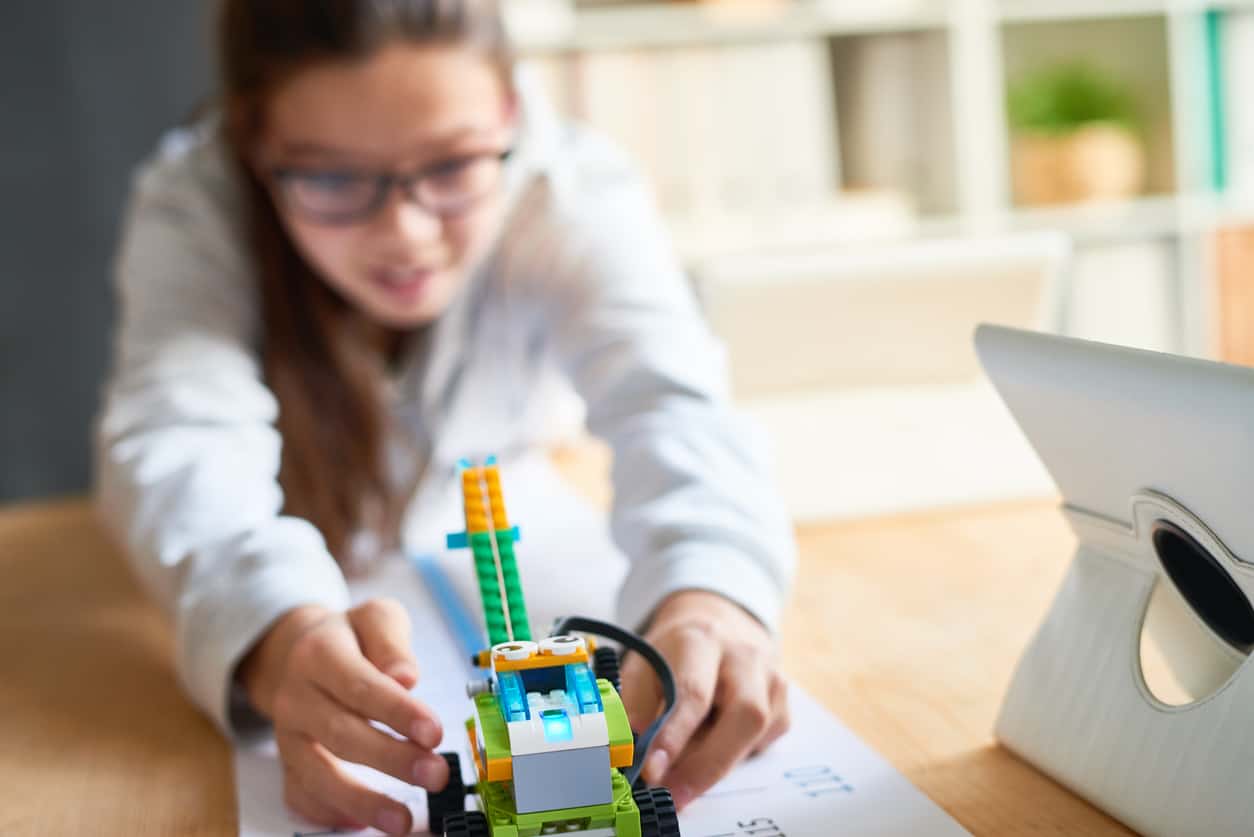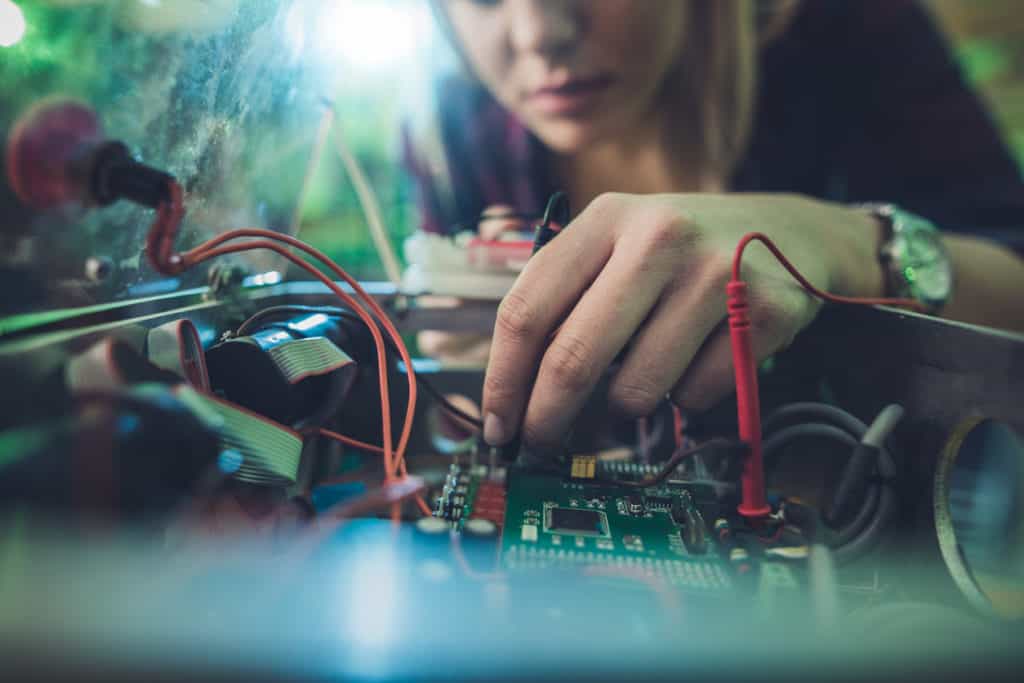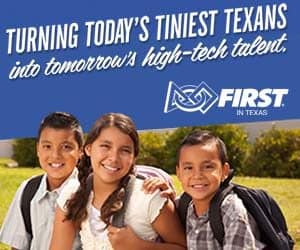
- About
- News
- Programs
- Grants
- Events
- Register
- Resources
- Donate



When Texas teenager Jessica Martinez first stepped into the halls of her high school, she never imagined that her high school career would include building robots, programming motherboards, and teaching her robotic creations to pick up objects and balance on beams in tech competitions.
That’s not the typical experience for most high schoolers, but thanks to FIRST® in Texas, Jessica did all that and more, as reported in an article covering Incarnate Word High School’s STEM program. Besides building and programming robots, Jessica and her school’s all-female robotics teams, the Shambots and the Shambots 2.0, spent hours practicing with intricate controls, directing their team built robot to pick up objects and place them in precise locations.
The experience changed the lives of these Texas teenagers. Many of them have decided to pursue careers in STEM (Science, Technology, Engineering, Math), and their participation in FIRST® competitions has opened doors to college scholarships and jobs with successful tech companies.
Stories like this are the hallmark of FIRST® in Texas programs. The personal growth and success of FIRST® participants have only strengthened the foundation’s resolve to provide every student in Texas the same opportunity that Jessica enjoyed.
The FIRST® in Texas Foundation began in 2010, and things accelerated quickly from there. With over 5 million dollars in grants from the Texas Workforce Commission and corporate partners, FIRST® in Texas has supported more than 1,000 middle and high school robotics teams and organized hundreds of FIRST® LEGO® League events. FIRST® programs have ushered Texans as young as six into the exciting world of STEM.
But the roots of the foundation go further back.
Its parent organization, FIRST®, was founded by Dean Kamen in 1989 with the goal of offering four levels of training in robotic programming. Kamen started his career as an inventor and holds more than 440 U.S. and foreign patents, including those for landmark medical technologies such as the infusion pump and the first wearable insulin pump. His passion for STEM, and for passing on the torch of innovation to the next generation, is contagious.
The goal of FIRST® is simple: give young people a vivid, life-changing glimpse into the world of STEM. With the help of mentor-based programs, FIRST® molds young minds into future leaders. Along the way, students gain essential life skills and develop qualities such as innovation, self-confidence, communication, and leadership.
A rigorous, exciting, purposeful immersion in STEM is exactly what Texas students need. Of course, it’s not that Texas is an underachiever in this area. In fact, according to US News rankings, three of the top fifteen STEM high schools in the nation are in Texas. The Texas Education Agency notes that Texas is home to over 121 T-STEM Academies, and FIRST® in Texas has supported STEM teams in over 1,000 schools.
However, with over 3,700 high schools in Texas, there is still work to be done.
FIRST® in Texas is working hard to give every student in Texas access to Kamen’s groundbreaking FIRST® programs. The foundation is an advocate for STEM at all levels of education, supporting robotics teams at the high school level, and giving students real-world skills in technology. Students of FIRST® are equipped with workforce readiness and highly valued soft skills along with access and exposure to FIRST® in Texas Partners. These partners include some of the best tech companies in the world, Dell and Texas Instruments among them.
Many FIRST® in Texas students have gone on to STEM dream jobs.
 Undoubtedly, some of the programs that make FIRST® in Texas so effective are the fastest growing in the state and start with the Tiniest Texans:
Undoubtedly, some of the programs that make FIRST® in Texas so effective are the fastest growing in the state and start with the Tiniest Texans:
The LEGO® Leagues are a warm-up to the main event: FIRST® Tech Challenges and Robotics Competitions. These programs are for grades 7-12 and 9-12, respectively.
If you have a passion for STEM education, there are many ways to get involved. You can become a mentor, volunteer at competitions, or support FIRST® in Texas financially with direct donations or contributions to continue to grow FIRST® programs across the Great State of Texas. Or simply contact FIRST® in Texas and introduce yourself! Together, we can bring the joy of STEM to every student in Texas.